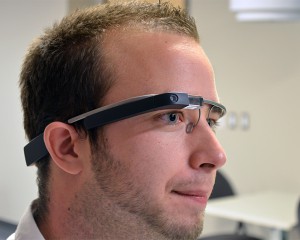Enterprise Mobile App Development : Dallas Fort Worth Metroplex
Wearables App Development
Ayoka serves businesses and healthcare organizations with wearable app development. Building apps that integrate with wearable devices is new to the field of software development. Ayoka combines this innovative approach with our deep development experience in business systems to create end-to-end connections from the field or remote user to database systems for reporting and analysis.
In March of 2012, Sony announced its first smartwatch and began an arms race to cater to the growing industry of wearables. In April 2013, Google unveiled its first wearable consumer electronic, the Google Glass. Soon after that, Apple revealed its iWatch, and the iOS powered smartwatch was announced. These products are major technological achievements, but are not without their share of privacy and security concerns.
Google Glass, for example, is a camera mounted to a pair of eyeglass frames, which helps the user to view information and work hands-free. This camera, coupled with a design for the user to wear them as they would their pair prescription glasses, has already caused some issues. This past March, a pair of developers created a proof on concept malware application called Malnotes. This App disguises itself as a normal note-taking application, but has a much more extensive purpose. “The App allows for the taking of a photo every ten seconds when Glass’s display is off, uploading the images to a remote server without giving the wearer any sign that his or her vision is being practically live streamed to a stranger”. Google has policies in place against recording without the user’s consent, but there is little to help a user to mitigate the risk of being the subject of a developer’s malware.

There are also privacy concerns with people that are not wearing wearables themselves, like Google Glass, or if dataset services compare your data to others’. Many privacy advocate groups are worried about the power of Google’s facial recognition tools that they employ in Google could be ported to the glass to track and identify people that the wearer is simply looking at which has led to the ban of the product in many private establishments. According to the FTC report, data brokers collect demographic and public record data, social media and other identifying personal data like name, address, and phone number, to respond to a demand from companies who are willing to pay for the information. Damien Mehers, a wearables developer who built the Evernote app for Pebble and the Samsung Galaxy Gear, said, “Especially with the fitness [devices], if you read the license agreements, if people really realized what they are signing up for, they might be horrified at what they’re allowing the companies to do with the data. I think there needs to be more clarity and perspective from the user.”
The newest line of wearables is the Android Wear line. The smartwatch line is not readily available yet but is already receiving similar concerns from that the Glass received. The list of security risk includes, “the transmission of data. Wearable computers will tend to be connected to the user’s smartphone, to cloud storage, and/or to the internet. Transmitting sensitive data needs to be done securely. And also provide potential access point into the smartphone, opening up to risk sensitive data stored on the smartphone.” Its seems that Google is already concerned about its user privacy being violated, if you look at the Google’s Developer Preview License Agreement it seems to ban all the applications that involve the use of personal health information.
Tatiana Melnik, an attorney who works in healthcare IT explains, “The software is only as good as the developer.” The more consumer wearable devices and accompanying software released and evolve in this constantly-connected world we live in, the more potential security holes and privacy concerns the end user will find themselves vulnerable to.

